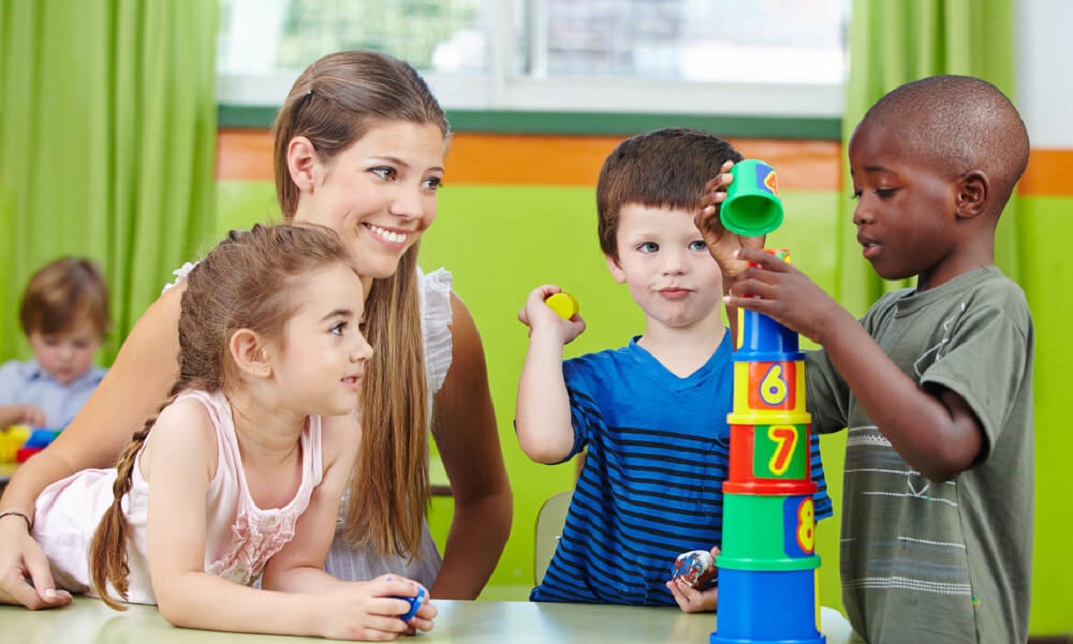No products in the basket.
Introduction
Raising children is one of the most gratifying and hard undertakings any parent can do. As a parent, you must inculcate in your children responsibility, emotional intelligence, and resilience. For them to grow into well-rounded, confident individuals. In this comprehensive guide, we will look at practical tactics, suggestions, and guidance to help you raise responsible, emotionally comfortable children. We can help you with everything from developing a strong parent-child connection to nurturing self-esteem and coping skills. Prepare to begin on a journey of development and progress for both you and your children. So, let us begin laying the groundwork for a bright future.
What is emotional security in child development?
In child development, emotional security refers to a kid’s sense of safety. Also, trust, and confidence in the availability and responsiveness of their carers. It entails the kid feeling secure that their emotional needs will be addressed. It ensures that they will be unconditionally loved and welcomed so that they can rely on their carers to be helpful and dependable.
Moreover, a stable emotional attachment with a primary carer can have a substantial influence on a child’s general development. It includes emotional control, self-esteem, social skills, and resilience. Children who have stable emotional bonds are more inclined to explore their surroundings, attempt new things, and feel confident in their skills. So, children who lack emotional stability, on the other side, may develop anxiety, anger, or behavioural difficulties.
How to Encourage Responsibility in Children when raising children?
The state or characteristic of being accountable or answerable for anything under one’s control l referred to as responsibility. It entails being reliable and following through on promises. As well as accepting responsibility for one’s actions and the repercussions of those acts.
Parents may foster responsibility in their children. By assigning age-appropriate jobs and responsibilities, setting clear expectations, and imposing consequences for poor decisions. Also by modelling responsible conduct, and praising their children for being responsible. It is also critical to provide youngsters the opportunity to make decisions, solve issues, and learn from their errors. Consistent and fair discipline, as well as open communication. It can also aid in the development of a feeling of responsibility in children.
The importance of raising children with responsible and emotionally secure kids
Raising emotionally comfortable and responsible children is crucial for various reasons:
- Improved Mental Health: Emotionally secure children are more likely to have a good self-image. Also, develop appropriate coping skills for dealing with stress and obstacles. Thus, this builds the groundwork for adult mental health and resiliency.
- Stronger Connections Emotionally comfortable children are better able to build healthy, meaningful relationships with others. They can trust, communicate, and collaborate successfully. Hence, it results in greater connections with family, friends, and potential love partners.
- Increased Confidence and Independence Emotionally secure children have a strong sense of self-worth. They are more inclined to take chances, be autonomous, and follow their interests. Thus, they are self-assured enough to accept obstacles and learn from their failures.
- Better Academic and Career Success: Emotional stability has been related to improved academic achievement and employment success. Hence, children who feel safe are more likely to be interested in learning, and resilient in the face of adversity. As well as being optimistic about their future.
- More Positive Contributions to Society: Emotionally stable children are more likely to grow into sympathetic, compassionate, and responsible individuals. They make positive contributions to society. Thus, they are prepared to build deep, meaningful relationships with people and make a difference in the world.
To conclude, parenting emotionally stable and responsible children is critical for their general well-being, success, and happiness.
Factors that contribute to emotional security
Several factors contribute to a child’s emotional security, including:
- Connection to Main Caregivers: A strong attachment to primary carers. Such as parents or guardians, providing children with a sense of security and stability. Children who have stable attachments are more likely to be confident and to have a favourable self-image.
- Positive Parent-Child Ties: Children with positive parent-child relationships are more likely to feel safe and cherished. Open communication, empathy, and persistent support are all part of this.
- Consistency and predictability: Children feel safer when their surroundings are stable and they can predict what will happen next. This involves regularity, relational stability, and consistent norms and limits.
- Emotional Support: Children require emotional support from their caretakers to feel safe. Empathy, affirmation, and encouragement are all examples of this.
- Autonomy Opportunities: Emotionally stable children are more inclined to be confident and take chances. Allowing youngsters to make decisions and take on responsibilities aids in the development of their self-esteem.
- Emotional Regulation: Children who can manage their emotions are better able to deal with stress and problems. This encompasses the ability to detect and control emotions, as well as being resilient in the face of hardship.
These factors work together to build an emotional foundation. Which promotes a child’s general well-being and growth.
How do you build a strong bond with kids when raising them?
Spending quality time with children, showing interest in themselves, being supportive, and being consistent in your words and actions all contribute to developing a close relationship with them. Other techniques to build your relationship with your children include:
- Show affection: Give hugs, kisses, and other physical manifestations of love and affection.
- Actively listening: Pay attention to what they have to say and make them feel as if they have been heard.
- Play together: Participate in activities and games that you and your kid both like.
- Share experiences: Make memories by going on trips, cooking together, or participating in a common activity.
- Encourage independence: Give your kid an opportunity to learn, grow, and make decisions on their own.
- Set a good example: Lead by example and model the beliefs and habits you want your child to have.
- Being present: When spending time with your youngster, set aside distractions such as your phone or job.
- Be honest and transparent: Communicate openly and truthfully, and urge your child to do the same.
The importance of parent-child relationships
Parent-child connections are critical in producing responsible and emotionally comfortable children. A solid and supportive connection between a parent and child may create a sense of stability and security. It allows youngsters to feel secure in their talents and supported in their growth and development.
- Emotional security: A solid parent-child connection gives emotional security. Which allows youngsters to feel loved and respected. This can increase their self-esteem and resilience. By making children more prepared to face life’s obstacles.
- Better conductEmotionally comfortable children are more likely to exhibit good behaviour. But less likely to participate in negative behaviours.
- Improved academic performance: Children who have solid parent-child connections do better academically and are more motivated to succeed in school.
- Stronger interactions with peers: Children who have great parent-child ties are more likely to have strong social skills. It helps them to create healthy relationships with their classmates.
- Increased feeling of responsibility: Children who feel safe and supported by their parents are more likely to accept responsibility for their behaviour and develop a strong sense of duty.
It’s crucial to recognise that building parent-child ties takes time and work, but the advantages are well worth it. By being supportive, loving, and involved with your child, you may create the groundwork for a strong and meaningful relationship. It will last a lifetime.
Building Confidence and Self-Esteem in Children
Building children’s confidence and self-esteem is critical for their general growth and well-being. Children who have high self-esteem have more pleasant interactions. As well as better decision-making abilities, and a stronger sense of purpose. As a parent or carer, you may help your kid develop confidence and self-esteem by adopting the following steps:
- Unconditional love and support: Children need to know that they are loved and accepted for who they are, regardless of their successes or failings. Affirmations, praise, and encouragement regularly can assist in increasing their self-esteem.
- Encourage them to attempt new things: By encouraging your kid to do new things, they will acquire new skills and, and overcome obstacles. Also, develop a feeling of pride in their achievements.
- Help them find their strengths: Every child has unique strengths and abilities. You may help your child gain confidence in their abilities. It will help them boost their self-esteem by assisting them in identifying their capabilities.
- Encourage positive relationships: Children who have positive ties with their family and friends have stronger self-esteem. Encourage your child to form strong interactions and offer a nurturing atmosphere in which they can thrive.
To summarise, developing children’s confidence and self-esteem requires time and patience, but the long-term advantages are well worth the effort. Children who have a high sense of self-esteem and confidence as they grow up are more likely to meet life’s problems with grit and resolve.
Importance of child care in UK
In the UK, child care is critical to the development and well-being of children. It provides a secure and caring atmosphere for children. It helps them to learn, grow, and socialise while their parents are at work. Quality child care may help children’s cognitive, emotional, and social development and set them up for future success. Furthermore, it supports parents and families by offering much-needed relief and peace of mind. Child care also benefits the economy by allowing parents to work and increasing labour force participation. Ensuring that all children in the UK have access to high-quality child care. It is critical for fostering equality and supporting the country’s future generations.
Summary
To summarise, raising responsible and emotionally comfortable children takes time and work, but it is well worth it in the long run. You can offer your children the foundation they need to become happy, confident, and well-rounded persons. By providing a supportive and caring atmosphere, setting limits, teaching values, and being a good role model. Remember that parenting is not a one-size-fits-all process. Each child is unique, so approach each circumstance with openness and understanding. You can help your children develop into responsible, emotionally stable adults with the correct tools and instruction.
FAQs
What is The Ultimate Guide To Raising Responsible, Emotionally Secure Kids about?
The Ultimate Guide To Raising Responsible, Emotionally Secure Kids is a complete guide that will assist parents in raising responsible, emotionally secure, and confident children. It discusses subjects such as creating healthy self-esteem, imparting empathy, and encouraging responsibility.
How can I raise a responsible child?
To raise a responsible child, begin by setting clear expectations and limits. Assigning age-appropriate jobs and responsibilities. As well as applauding their efforts and successes. Also, educating them to accept responsibility for their actions. Offering positive reinforcement for responsible behaviour. Consistent punishment and consequences for misbehaviour can also help teach youngsters the value of responsibility. Set a good example and foster a supportive environment that encourages your child to be responsible and accountable.
What are some common mistakes parents make in raising responsible and emotionally secure kids?
There are so many common mistakes that parents make in raising children with responsible and emotionally secure kids. Including: over-protecting them, and neglecting to establish clear boundaries and consequences. Also, being inconsistent with discipline, criticising and belittling them. As well as neglecting their emotional needs. Children may develop low self-esteem, emotional uncertainty, and a lack of responsibility as a result of these activities.
How can I help my child develop good communication skills?
To help your child develop good communication skills. Begin by modelling positive communication yourself. Encourage children to express their thoughts and feelings, to listen when they talk, and to applaud their communication attempts. Allow children to practise their talents in a variety of contexts, such as playdates, family events, and group activities. Give them the skills and direction they need to communicate successfully. While also making them feel secure and respected in their relationships with others.
What role do relationships play in raising responsible and emotionally secure kids?
Relationships allow youngsters to learn communication and emotional control, as well as create trust and self-esteem and develop empathy and understanding.
How can I help my child handle conflicts and disagreements?
Teach them conflict resolution skills, foster empathy and understanding, and serve as an example of good conflict resolution tactics.





